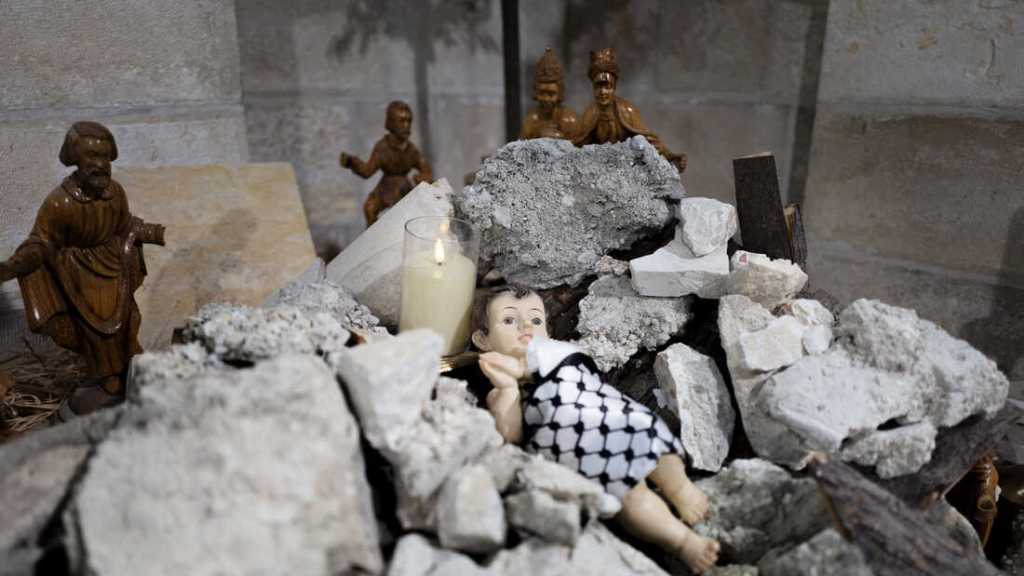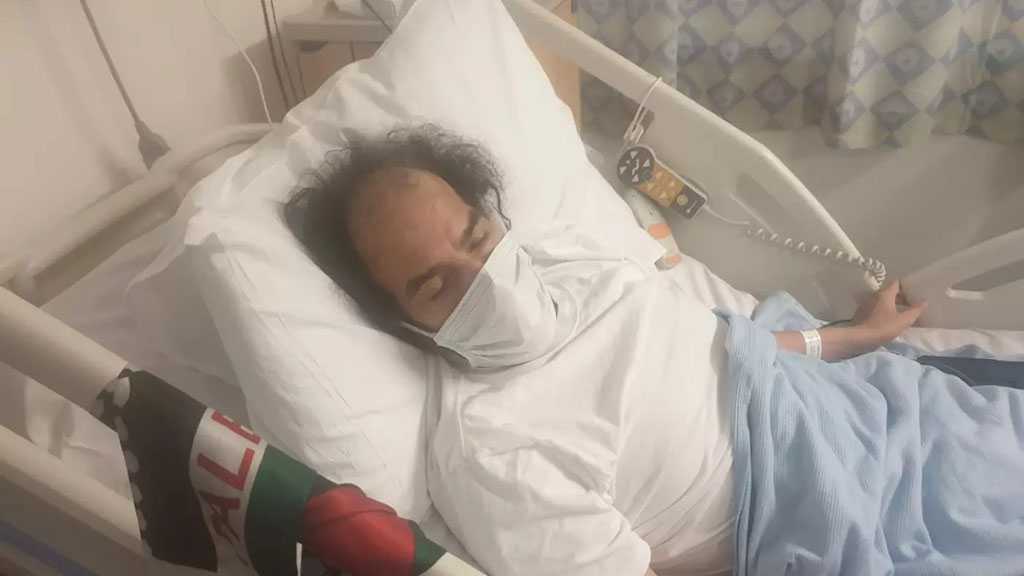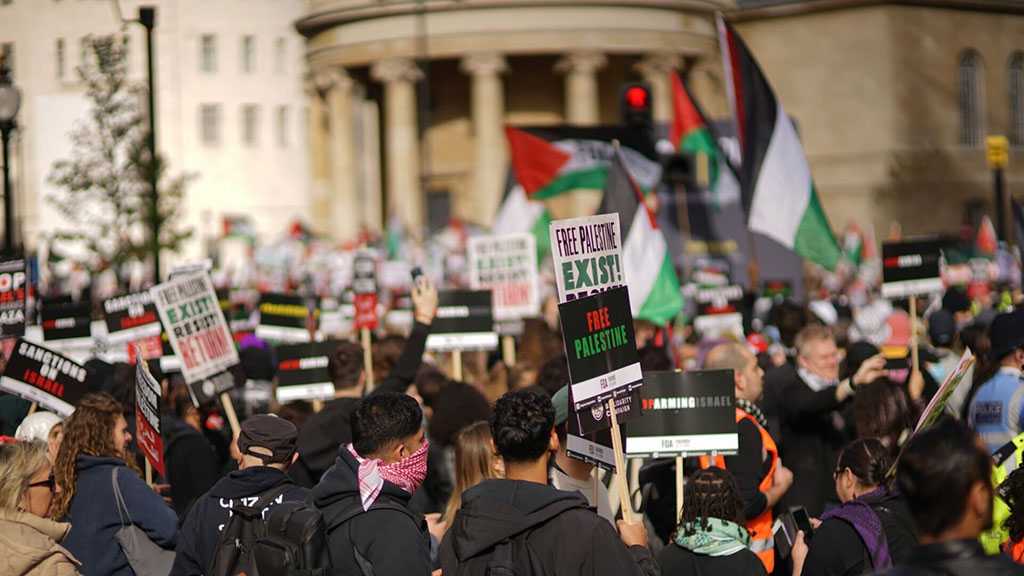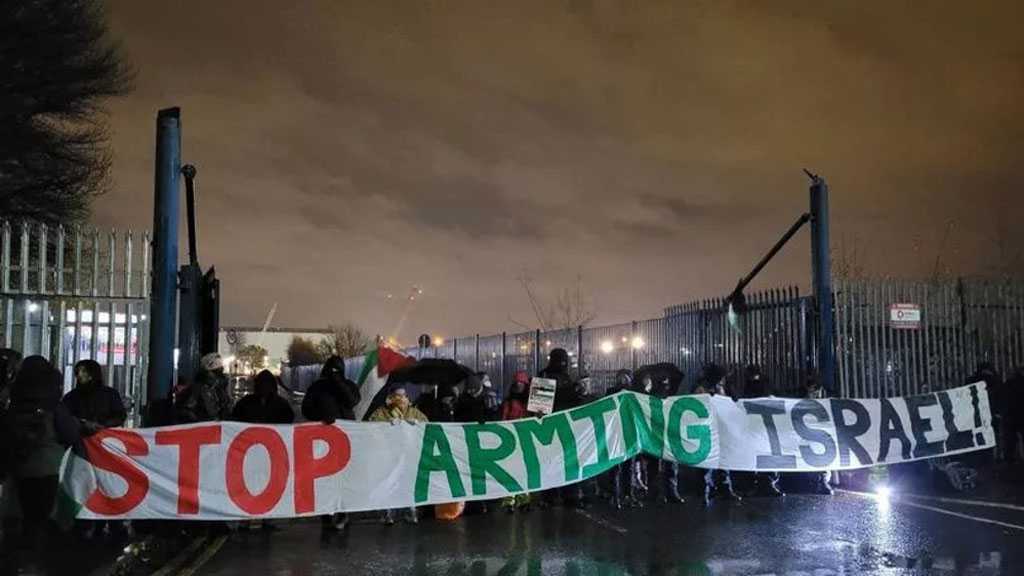
Russian Spy Incident: UK’s May Expels 23 Diplomats
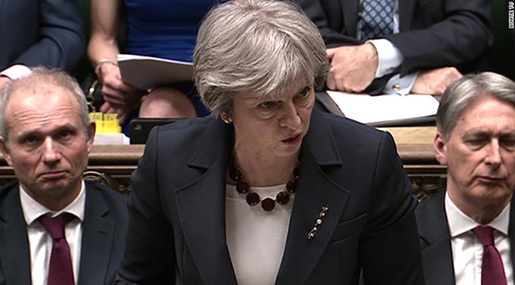
Local Editor
Theresa May has moved to dismantle a Russian spy "network" in the UK, expelling 23 embassy officials in the biggest number of diplomatic expulsions since the Cold War.

The dramatic decision to remove "undeclared intelligence officers" came alongside measures to freeze Russian assets, cut off high-level communication with Moscow, pass new anti-espionage powers and isolate Vladimir Putin at the UN.
It is believed that the Government has already drawn up a "B-list" of further Russian officials to be expelled if the reaction from Moscow to the measures announced by May are deemed to be "disproportionate".
British Defense Secretary Gavin Williamson is also set to announce a new £48m chemical weapons facility at the Porton Down laboratory in Wiltshire and confirm that all UK troops will receive an anthrax jab.
It comes 11 days after an attack involving a Russian-made military-grade nerve agent left the former spy and double agent Sergei Skripal, his daughter Yulia and a British police officer in hospital in Salisbury, sparking outrage among the UK and its allies.
Within minutes of the Prime Minister making her announcement in the House of Commons, Moscow denounced it as an "unprecedentedly crude provocation" and vowed "our response will not be long in coming".
May told MPs that following Russia's failure to explain how its nerve agent came to be used in the Salisbury incident, there was now no alternative account other than that the Russian state was culpable.
She said: "This morning I chaired a further meeting of the National Security Council where we agreed immediate actions to dismantle the Russian espionage network in the UK."
Diplomats identified as spies have been given a week to leave in what constitutes the largest mass expulsion since 31 were ordered out in 1985 following the defection of double agent Oleg Gordievsky.
The Prime Minister told MPs the expulsions would "fundamentally degrade Russian intelligence capability in the UK for years to come".
She said: "If they seek to rebuild it, we will prevent them from doing so."
May also promised measures that she said "cannot be shared publicly for reasons of national security".
She told MPs the Government will also develop new powers to "harden our defenses" at borders, including tightening checks on those who may endanger UK security.
Currently security forces only have the power to detain people suspected of terrorist activity, but May wants to expand the scope of powers to those suspected of the broader "hostile activity".
May also announced a "Magnitsky" amendment to legislation already going through Parliament to create powers that would allow the Government to seize assets of those responsible for human rights violations.
Steps to suspend all planned high-level contacts between the UK and the Russian Federation would be taken, including the cancelling of a visit by the Russian Foreign Minister Sergei Lavrov.
The Prime Minister also confirmed members of the Royal family will not attend the World Cup in Russia this summer.
She said: "Many of us looked at a post-Soviet Russia with hope. We wanted a better relationship and it is tragic that President Putin has chosen to act in this way.
"But we will not tolerate the threat to life of British people and others on British soil from the Russian Government.
"Nor will we tolerate such a flagrant breach of Russia's international obligations."
On Wednesday evening Britain's deputy ambassador to the UN told an emergency meeting of the Security Council that the Salisbury attack was a "reckless act carried out by people who disregard the sanctity of human life".
Jonathan Allen said the attackers were "indifferent" about harming innocent civilians. "A weapon so horrific that it is banned in war was used in a peaceful city in my country," he said.
The US Ambassador to the UN, Nikki Haley, accused Russia of a "crime" worthy of action by the UN Security Council, as she backed Britain's attempts to punish Moscow for the poisoning in Salisbury.
Haley told the Security Council meeting that the US believes "Russia is responsible for the attack on two people in the United Kingdom using a military-grade nerve agent".
"Alone, Russia's crime is worthy of this Council's action, but this not an isolated incident, it is part of an alarming increase in the use of chemical weapons," she said, citing the assassination of the brother of North Korea's Kim Jong-un.
"A growing concern in all of this dangerous and destabilizing activity is Russia," she added.
Speaking about the relationship with the UK, Haley said: "No two nations enjoy a stronger bond than that of the United States and the United Kingdom. Ours is truly a special relationship. When our friends in Great Britain face a challenge, the United States will always be there for them. Always."
Russia's Ambassador to the UN, Vassily Nebenzia, repeated Moscow's denial that it had anything to do with the poisoning and called for proof of its involvement.
"We demand that material proof be provided of allegedly found Russian trace," Nebenzia said.
Following May's announcement, Moscow's Ministry of Foreign Affairs promised a swift like-for-like response. Lavrov accused the UK of "conceit", while the country's London embassy put out a statement branding May's announcement "unjustified and shortsighted".
Williamson will double down on the tough rhetoric as he makes his first major keynote speech as Defense Secretary on Thursday.
Speaking in Bristol he will announce £48m for a new Chemical Weapons Defense Centre at Porton Down to "ensure we maintain our cutting edge in chemical analysis and defense".
He will add: "If we doubted the threat Russia poses to our citizens, we only have to look at the shocking example of their reckless attack in Salisbury."
The Defense Secretary will also announce that thousands of troops held at high readiness will be vaccinated against anthrax in response to a growing chemical and biological weapons threat.
Source: News Agencies, Edited by website team
